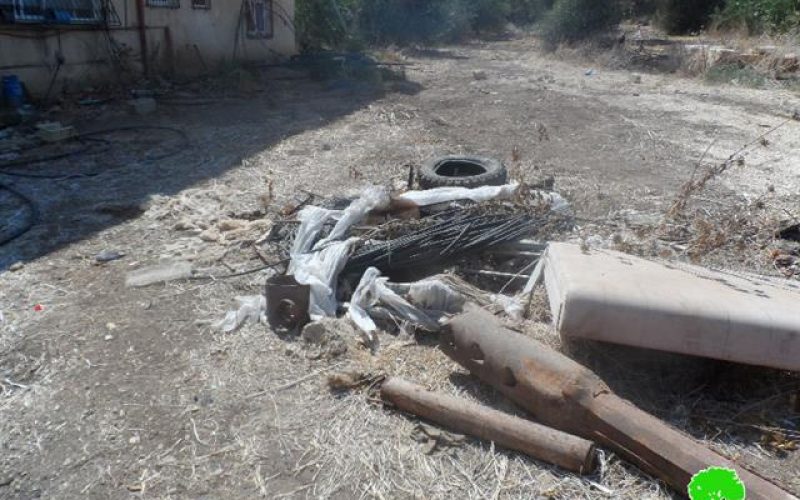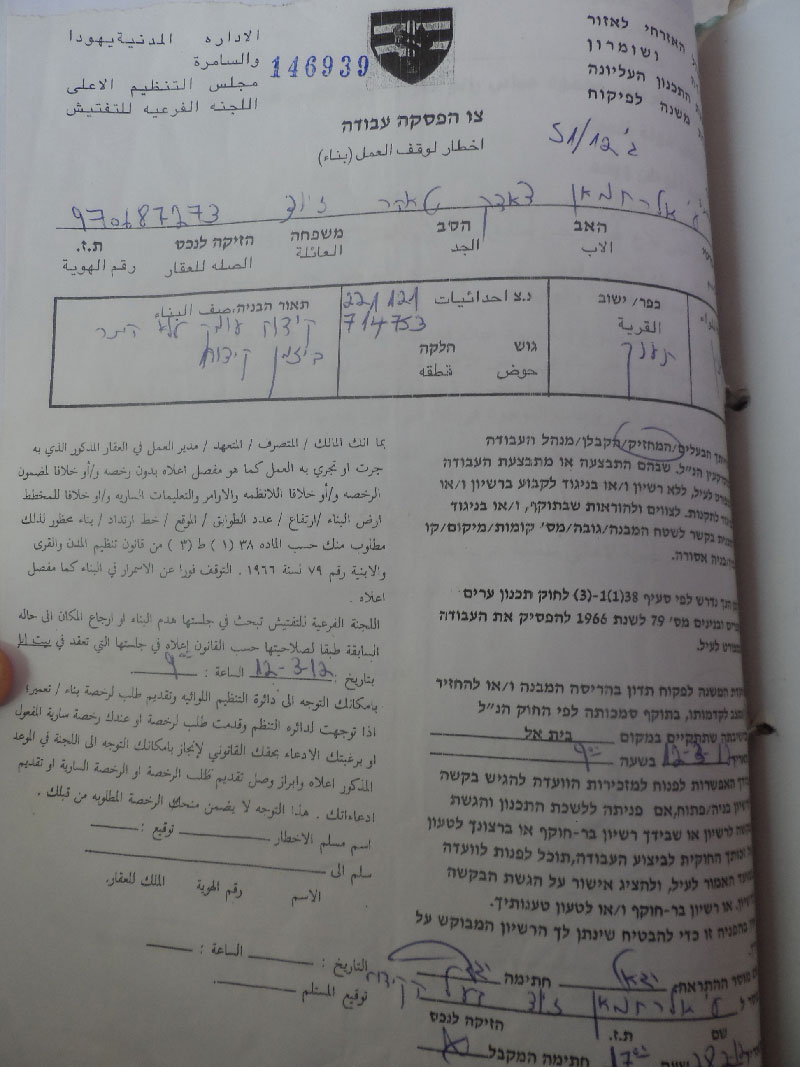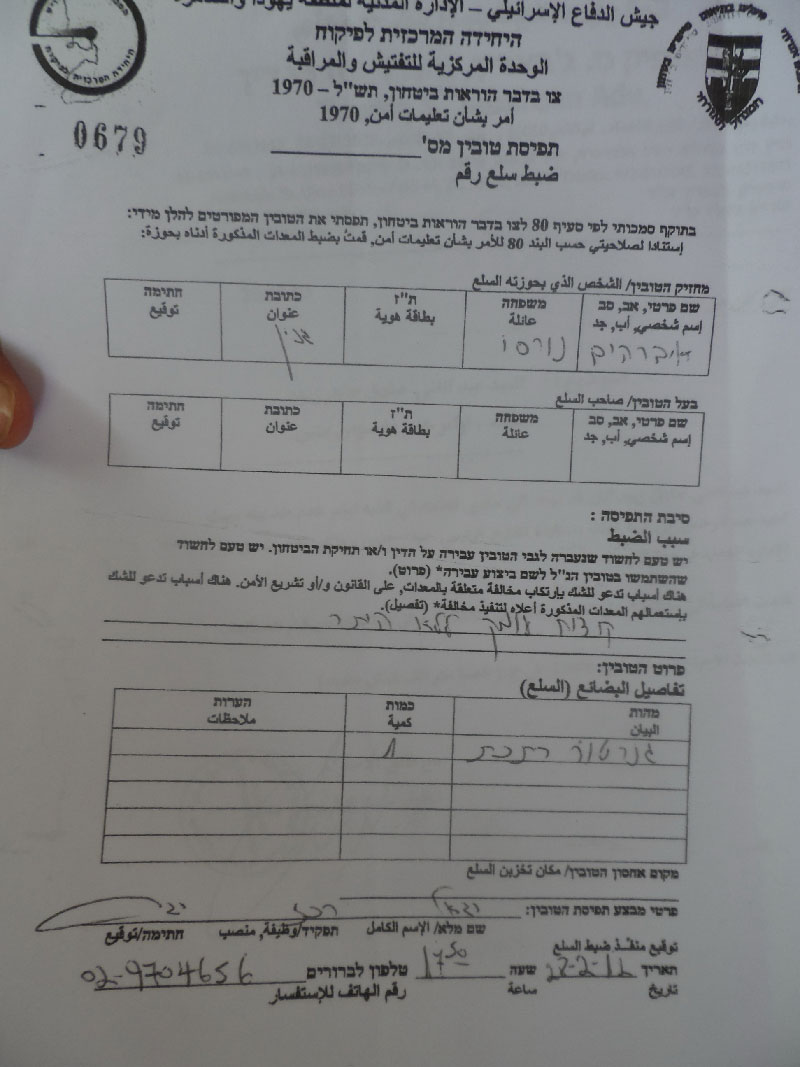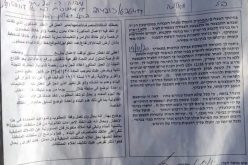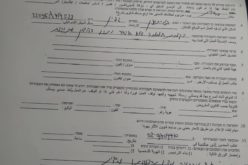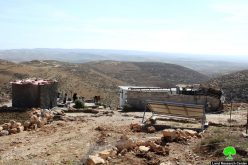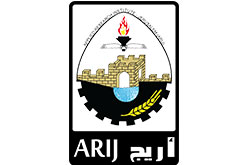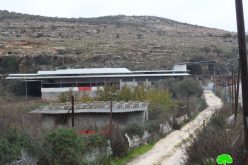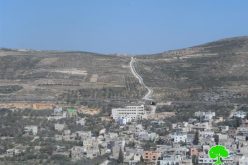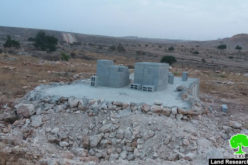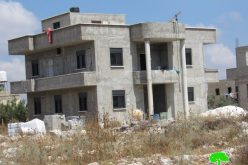Violation: notifying a water cistern and an agricultural room
Location: Ta'nak village/ Jenin governorate
Date: 03/09/2014
Perpetrators: the Supreme Committee for Planning/ the Inspection Sub-Committee of the occupation
Victims: the family of Abdelrahman ez-Zyoud
Details:
On 03/09/2014 the Inspection Sub-Committee of the occupation served two stop work orders on structures in the area of al-Hafira, northwest of Ta'nak village that is 10km away from Jenin governorate.
According to the orders, the first notification was served on a retaining wall and an agricultural room where the second order affected a water cistern " Nazzaz" in the area of al-Hafira, which is famous for its lands' fertility and its water stock. The following table explains the damage resulted by the orders :
|
Citizen |
Beneficiaries/families
|
Family |
Area/dunum |
Structure |
No, of order |
Photo |
|
Abdelrahaman ez-Zyoud and his sons |
5 |
19 |
23 |
A retaining wall of 50m+ an agricultural room(15m2 made of bricks and metal slabs) |
||
|
Nazzaz cistern(6inch) provides 1.5m3 + a water pump |
Attorney Bahaa' ez-Zyoud( an affected citizen) told the LRC researcher that: " al-Hafira is one of the small Palestinian villages relative to Ta'nak and is 1km away from it. The village is deprived from water and electricity services and networks and that is why residents depend on wells for human consumption and irrigation".
He also added: " we own an agricultural cistern "Nazzaz" built since 1990 that we use to provide water for five families of Zyoud, which reside and own 21 agricultural dunums in the area. The well(recently expanded and cleaned) pumps around 1.5m3 per day. To our surprise, the Inspection Sub-Committee notified the cistern and the pump with stop work. In addition to that, a retaining wall( surrounding the land with a length of 50m) and an agricultural room o f (15m2) were also notified with stop work".
According to the military orders, the owners were given until 22/09/2014 as a final date to complete the licensing procedures. This date come is time with the session of the Inspection Sub-Committee in Beit El court to consider the status of the structures.
An Israeli plan to empty the area:
The attorney also pointed out that Israel Water Authority has targeted another well in the same area called al-Hafira cistern in 2012. The well is considered one of the known artisan wells that supply water for irrigation in Ta'nak. Noteworthy, the cistern dates back tens of years before the Israeli occupation on Palestine and because of the fact that the occupation tended to dig underground wells near the Palestinian water resources, the cistern of al-Hafira became weak in terms of pumping water.
He continued saying: " on27/01/2011, we obtained a permit from Palestine Water Authority to rehabilitate the well but on 28/02/2012 the cistern was notified with stop work by the Inspection Sub-Committee and Israel Water Authority. Most of the machineries used in the rehabilitation namely( the pump, a welding machine, a digger, and a electricity generator) were confiscated and returned after a while Finally, on2012, the Supreme Court of Israel issued an order based on the allegations submitted by Israel Water Authority to demolish the cistern
Photo4: the permit issued by Palestine Water Authority
Photo5: the stop work order on al-Hafira cistern
Photo6: the machineries confiscation order
Legal follow-up:
It should be marked that the affected citizens submitted many pleas to Israel Supreme Court on the stop work and demolition orders. Jerusalem Center for Legal Proceedings was assigned to complete the licensing procedures on the 09/09/2014.
Ta'nak : a "thirsty" village floating on a water stock :
The chairman of Ta'nak village council Dahoud Abu Qdyadih to the LRC researcher stated the following: "the village is located alongside with Jezreel Valley " Sahel Marj Bin 'Amer" and is famous for it floats on a huge water stock. Any digging activity of more than 9m makes water erupt strongly. Unfortunately , residents have to buy water from the Israeli company of Mekorot. Lands planted with vegetables shrank because of water scarcity and Israeli control on the water resources. Not only that, farmers went to work behind the green line(boarders separating Israel and the West Bank) after depending on their lands when they used to be farmers. The total population of the village now is 1200 people".
Prepared by
The Land Research Center
LRC

